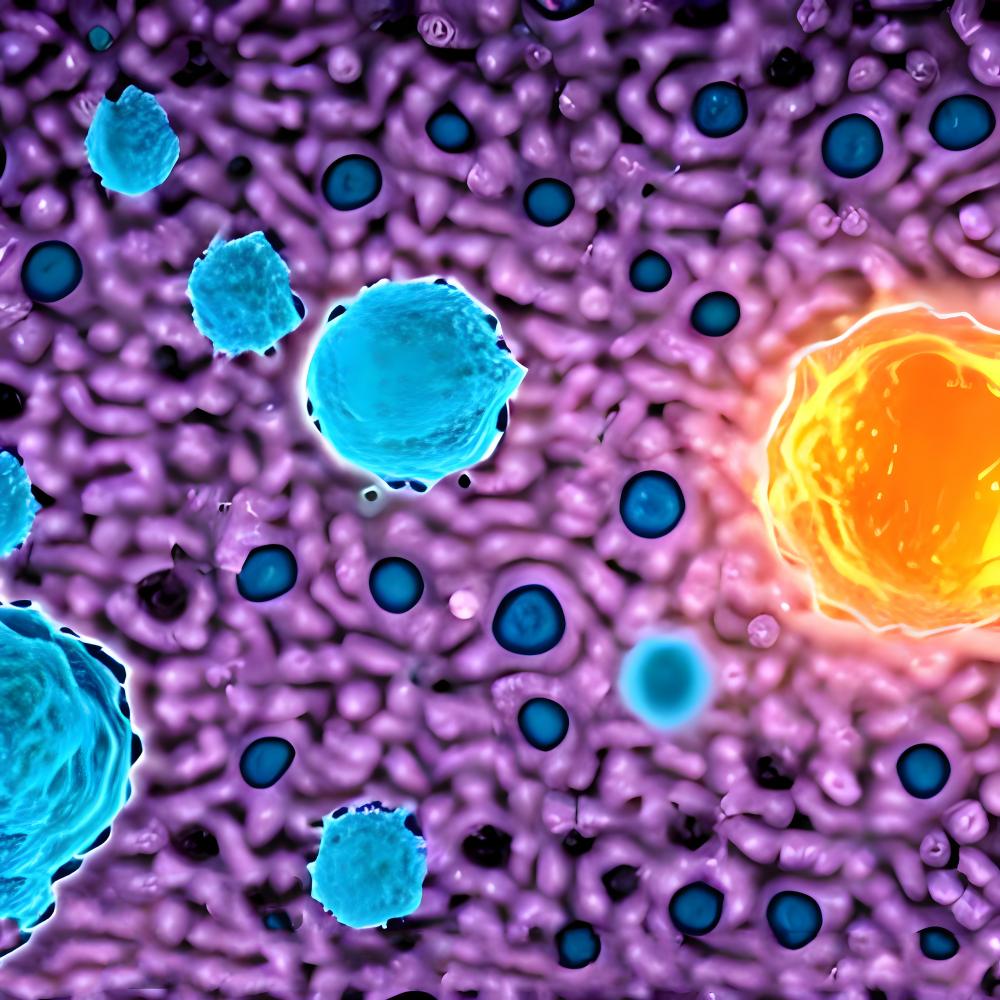Table of Contents
Exploring Chemo Alternatives: A Personal Journey

At Privado Health, we constantly seek ways to innovate and provide compassionate care for those facing cancer. The path to recovery is personal and, for many, the thought of chemotherapy and its associated side effects can be daunting. This is why we hold a deep commitment to bringing forward chemo alternatives that align with our vision of precision medicine.
A Personalized Approach to Cancer Care
When I joined Privado Health, I was inspired by the stories of those seeking not just life-prolonging treatments but also solutions that honored their quality of life. Chemo alternatives have become an integral part of our practice precisely for this reason.
As our esteemed Medical Director, Dr. Frankis Almaguel, often says, “Treating cancer is about treating the person, not just the disease.” This conviction has fueled our advancements in Theranostics, enabling treatments that are both effective and tailored to the individual.
Surgery as an Alternative Option
One of the most traditional forms of chemo alternatives is surgery. However, this isn’t the one-size-fits-all solution it once was. Nowadays, surgeries are more targeted and less invasive. Just last month, I watched in awe as our surgical team, with their years of expertise, operated on a small tumor, removing it with precision and helping a patient begin their recovery with minimal downtime.
Minimally invasive procedures have revolutionized this space, reducing hospital stays and recovery times, allowing our patients to return to their lives sooner.
The Rise of Immunotherapy
Immunotherapy has been one of the most promising advances in cancer treatment. By harnessing the body’s own immune system, we’ve seen remarkable results in previously hard-to-treat cases. Alan H., a patient of ours, experienced a significant reduction in cancer cells thanks to this approach.
While not without potential side effects, immunotherapy often presents fewer and less severe challenges compared to traditional chemotherapy. The stories of people like Alan provide tangible evidence of the possibilities lying within our own bodies.

Embracing Targeted Therapies
Precision is at the core of what we do, and targeted therapies are the epitome of that ideal. These treatments hinge on identifying specific genetic markers within cancer cells and using medications that zero in on them.
Targeted therapies symbolize a leap forward from the indiscriminate approach of conventional chemotherapy, offering a way to tackle the disease at its root without widespread collateral damage to healthy cells.
Active Surveillance: A Watchful Approach
Not every cancer requires immediate, aggressive action. Active surveillance is a chemo alternative that allows patients with slow-growing cancers to maintain their current quality of life without the side effects of more invasive treatments.
This method isn’t passive; it’s a strategic choice that involves regular monitoring and readiness to act if necessary. It’s an approach that requires trust between patient and practitioner, and this trust is something we cultivate with every person who walks through our doors.
Matthew C., once anxious about starting treatment, found solace in the active surveillance plan we tailored for him. His cancer remains stable, and he continues to enjoy his passions without interruption.
Supportive Care: Enhancing Comfort and Well-being
The journey through cancer is riddled with challenges beyond the physical. That’s where Supportive Care comes into play. It’s not merely a chemo alternative but a companion to any treatment modality we offer.
Through modalities such as psychotherapy, nutrition counseling, and alternative therapies like acupuncture, we aim to bolster the overall well-being of our patients. The positive impact of these supportive services can be profound, often helping patients find strength they didn’t know they had.
Building on Holistic Management
Our approach extends beyond the walls of treatment rooms. Whole health management is crucial, and we’re here to guide our patients on a path that includes proper nutrition, sleep, and stress management.
Anecdotal evidence from those we’ve assisted underscores the importance of looking at the person as a whole. I recall a patient whose sleep disturbances were mitigated through our integrative methods, allowing him to better cope with his treatment regime.
Integrative Therapies: A Union of Techniques
Integrative therapies bridge the gap between traditional and alternative medicine. With options like aromatherapy and mindfulness meditation, we offer our patients a comprehensive toolkit to manage the cancer journey more gracefully.
These therapies are no mere afterthought; they’re woven into the fabric of our treatment programs. We’ve seen the impact firsthand — a renewed sense of calm and control in the lives of those we care for.
Theranostics: A New Frontier in Cancer Treatment
While discussing chemo alternatives, it’s impossible not to mention the groundbreaking field of Theranostics. It is a pillar of Privado Health and represents the harmonious blend of therapy and diagnostics that has become our hallmark.
It’s not just about offering options; it’s about providing the right treatment for the right patient at the right time. Our clinical trials are continuously expanding the boundaries of what’s possible, bringing hope to those who once faced a limited set of options.
The Role of Urologists in Theranostics
Urologists are often the first to detect and treat prostate cancer. By equipping them with Theranostics knowledge, we’re creating a ripple effect that extends our reach and increases the treatment options for their patients.
Every urologist we work with becomes a valued member of a larger network of care, united by our shared mission to revolutionize cancer treatment.
Inspiring Patient Stories
Our patients’ experiences are the heart of our story. Each narrative, like that of Alan Held or Mathew C., brings the benefits of chemo alternatives to life. Their improved outcomes remain our utmost motivator and the clearest indication of our success.
Educational Resources and Support
We also know that knowledge is power, especially when battling cancer. Our commitment to education is unwavering, from in-depth articles on managing health during cancer treatment to providing a compassionate ear when our patients need it most.
Concluding Thoughts: A Commitment to Better Alternatives
In the quest for chemo alternatives, the path is not linear, and we are continuously learning, adapting, and evolving. Privado Health stands not just as a provider of treatments but as a partner in the deeply personal journey of cancer care.
Our dedication to discovering and implementing the most effective and compassionate care options endures. It is an honor to walk this path alongside our patients, to be a part of their stories, and to witness the unfolding possibilities of life beyond cancer.
As we look to the future, we’re fueled by the successes of our patients and driven by the potential of emerging therapies. The horizons we explore today pave the way for a tomorrow filled with hope and healing.

Understanding Chemo Alternatives
What are chemo alternatives, and how do they differ from traditional chemotherapy?
Chemo alternatives refer to treatments for cancer that do not involve traditional chemotherapy’s approach of using cytotoxic drugs to kill rapidly dividing cells. These alternatives encompass a range of therapies that aim to target cancer cells more precisely while minimizing damage to healthy cells. For instance, targeted therapies focus on specific proteins or genes associated with cancer cell growth, and immunotherapy empowers the immune system to recognize and fight cancer cells. These methods offer a stark contrast to chemotherapy, which cannot distinguish between healthy and cancerous cells, leading to broader side effects.
How does Privado Health’s personalized approach improve the effectiveness of chemo alternatives?
At Privado Health, we embrace the uniqueness of each patient’s condition by tailoring treatments to their specific cancer biology. A personalized approach allows us to use precision medicine techniques, such as molecular profiling, to identify the most effective chemo alternatives based on individual genetic markers. This precision not only improves the effectiveness of the treatment but also mitigates unnecessary side effects. We’ve seen patients like Alan thrive under such personalized care, with treatments like immunotherapy resulting in a significant reduction in his cancer cells without the harsh impact of traditional chemotherapy.
What are some common misconceptions about surgery as a chemo alternative?
A common misconception is that surgery is always a highly invasive and risky option for cancer treatment. However, advances in medical techniques have led to the development of minimally invasive surgeries that are precisely targeted and result in less trauma and faster recovery. We’ve had cases at Privado Health where patients were amazed by how quickly they could return to their daily lives post-surgery, owing to the minimal downtime involved.
What role does immunotherapy play as a chemo alternative, and what potential side effects should patients be aware of?
Immunotherapy plays a transformative role as a chemo alternative by utilizing the body’s immune system to combat cancer. This approach can be highly effective, especially for cancers that have historically been difficult to treat. While immunotherapy tends to have fewer and less severe side effects compared to traditional chemotherapy, patients may still experience immune-related reactions. At Privado Health, we closely monitor our patients for any adverse effects and manage them proactively to ensure the best possible outcome.
Can you elaborate on the strategy behind active surveillance and its role in cancer treatment?
Active surveillance is a carefully considered strategy for managing certain slow-growing cancers. It involves close monitoring of the cancer without immediate invasive treatment, which can preserve the quality of life when the risks of intervention exceed the benefits. This method isn’t for everyone, but for patients like Matthew C., it has been the key to living with cancer without the side effects of aggressive treatments. We determine the suitability for active surveillance on a case-by-case basis, always ready to modify the plan should the patient’s condition change.
Why is supportive care critical in the treatment of cancer, alongside chemo alternatives?
Supportive care is critical because the cancer journey extends beyond physical treatments; it encompasses the emotional, psychological, and overall well-being of our patients. At Privado Health, we integrate supportive care with modalities such as psychotherapy and acupuncture to enhance comfort and well-being. This holistic approach can significantly improve a patient’s ability to cope with cancer and its treatment, empowering them to remain strong and resilient throughout their journey.
What advancements in Theranostics can patients expect from Privado Health in the near future?
The field of Theranostics is rapidly evolving, and at Privado Health, we’re at the forefront of this revolution. Patients can anticipate new Theranostic agents that are currently in clinical trials, offering more personalized and effective treatments with potentially fewer side effects. Our collaboration with experts, such as Dr. Frankis Almaguel, ensures that we remain at the cutting edge, continuously expanding treatment options that could redefine cancer care.
How are urologists involved in advancing the practice of Theranostics at Privado Health?
Urologists play a critical role in the early detection and treatment of prostate cancer, which is one of the key areas where Theranostics has shown remarkable success. By equipping urologists with the knowledge of Theranostics, we empower them to offer sophisticated treatment options to their patients. Our collaborative efforts ensure that the latest advancements in Theranostics become accessible to a wider patient population, potentially improving outcomes for individuals with prostate cancer.
How do patient stories motivate the continued search for effective chemo alternatives at Privado Health?
Patient stories are the heartbeat of our mission. They remind us of the real-world impact of our work and motivate us to pursue the best care possible. Every time we hear about a patient like Alan or Matthew, whose lives have been fundamentally changed by chemo alternatives, we’re inspired to press on, innovate, and expand access to these life-affirming treatments.
What role does patient education play in cancer treatment at Privado Health?
Education is a pillar of empowerment. At Privado Health, we believe informed patients make better decisions about their care. By providing comprehensive resources, from nutritional advice to managing side effects, we give patients the tools they need to navigate their treatment with confidence and a sense of control. This education extends to their families and the broader medical community, fostering a well-informed support network that is crucial to the healing process.
In what ways does Privado Health’s commitment to chemo alternatives pave the way for hope and healing?
Our commitment to chemo alternatives at Privado Health is about more than just offering options; it’s about creating a new paradigm of hope and healing for our patients. By personalizing cancer care, embracing innovative treatments, and supporting our patients in every aspect of their well-being, we help to illuminate a future where cancer is a manageable part of life–not the defining factor. It is our honor to be part of this transformative journey with those we serve.
Helpful Resources for Understanding Chemo Alternatives
- National Cancer Institute (NCI): The NCI provides comprehensive information on cancer treatments, including alternatives to chemotherapy, and the latest research on cancer care. Immunotherapy | Targeted Therapies
- Centers for Disease Control and Prevention (CDC): The CDC offers educational materials on cancer prevention, treatment options, and survivorship. Treatment Types
- American Society of Clinical Oncology (ASCO): ASCO features detailed guides on cancer treatment methods, including emerging therapies and supportive care. How Cancer is Treated
- American Cancer Society (ACS): The ACS provides resources and support for patients, caregivers, and survivors, covering various aspects of cancer care and management. Treatment Types
- Cancer Research Institute (CRI): CRI specializes in the field of immunotherapy, offering insights into how it works and the types of cancers it can treat. Cancer Types and Immunotherapy
- The Society for Immunotherapy of Cancer (SITC): SITC is a leading organization dedicated to improving cancer patient outcomes by advancing the science and application of cancer immunotherapy. Treatment Options
- National Institutes of Health (NIH) Office of Cancer Complementary and Alternative Medicine: This NIH office provides evidence-based information on complementary and alternative medicine in cancer care. Complementary and Alternative Medicine
- Medscape Reference: Medscape offers a detailed section on different types of cancer treatments, authored by experts in the field. It’s a valuable resource for understanding the medical background of therapies. Oncology Articles
- National Comprehensive Cancer Network (NCCN): NCCN is a not-for-profit alliance of leading cancer centers devoted to patient care, research, and education. Patient Resources – Treatment
- World Health Organization (WHO): WHO provides global data and information on cancer control, prevention, research, and treatment strategies. Cancer Facts
